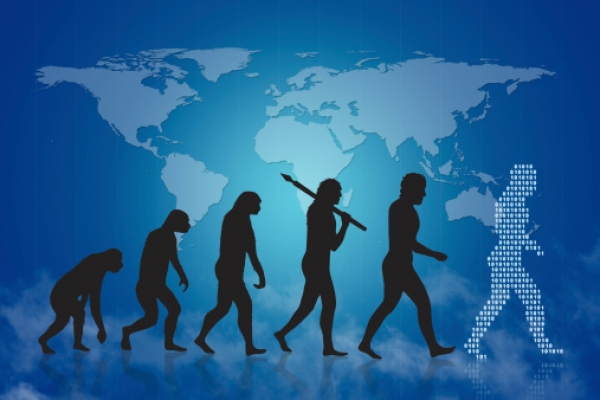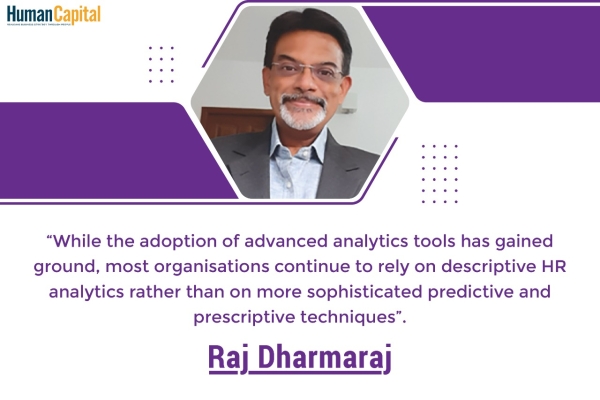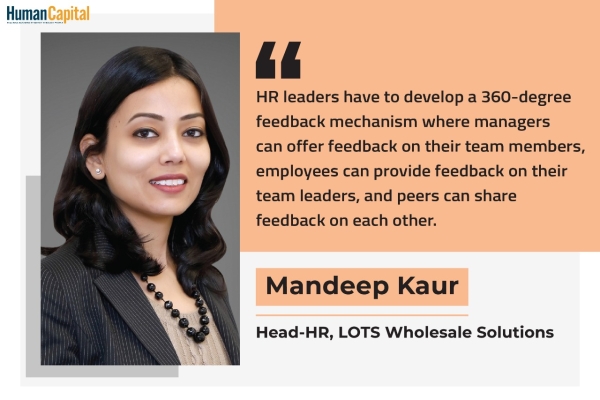Keeping pace with the ever-changing dynamic environment will become a way of work. The future belongs to those who are able to effectively deal with these disrupters, and adapt themselves and their strategies with the change.
We are taking rapid strides towards an era of transformation where AI Automation, Big Data, and IoT will or would have already begun to dominate the way things are done around businesses and the HR function. Prime discussions are focussed around replacing human intelligence with AI, automating processes or workflows, using big data to arrive at useful insights, and lastly, leveraging IoT within the existing way of working. The intent behind this is to derive solutions towards enhancing productivity, and bringing forth greater efficiency to the business.
Disrupters to transform the HR function
AI technology: Many organisations have begun incorporating AI technology in their talent acquisition process, such as during the initial screening of candidates and scheduling interviews with various stakeholders. Thus, they are putting an end to investing too much time and effort to ascertain the initial level of fitment as well as the endless coordination with various stakeholders to schedule interviews. Another big leap in deploying AI technology has been through the recently launched Talex by Tech Mahindra, the first AI-based technology to manage the talent management process. This technology matches candidates' profile with suitable job openings within the organisation, considers their previous assignments, educational background, skills, manager ratings, self-rating, as well as awards and accolades for endto-end talent management processing.
Automation: There is a huge focus to automate various processes within HR to improve efficiency and to ensure that HR transitions from performing an operational or administrative role to one which is more strategic. However, a lot of ground needs to be covered, since in reality, HR still juggles between operational /transactional work and strategic work. That said, a lot has been done in terms of automating the hiring process through the Application Tracking system, Performance Management process, employee self-help portal (or Intranet), recognition platforms, basic HR reporting, etc., to create more space for an HR professional to concentrate better on meaningful work.
Big Data: HR analytics is the next big thing for the new age HR function. The industry is moving towards seeking answers from a huge reservoir of data. Using big data and linking HR data with the business data to come up with valuable insights to drive business solutions will be garnering the attention of the HR Function.
Internet of Things (IoT): Leveraging IoT is yet another big step which will take the attention of the HR function. The need to remain connected with each other round the clock, easy exchange of messages or ideas, flexibility to manage work through mobile phones and wearable devices, managing leave and attendance, quick accessibility on performance reports, etc. are important for improving the employee experience
Future expectations
With the above disruptions happening at a greater-than-anticipated speed, a huge need is created to transform the way the HR function will operate. The future is likely to witness:
A leaner HR Function: With major impetus on improving efficiency and productivity with these disruptors, many of the erstwhile HR jobs will become obsolete, making room for a much leaner function in the coming days. HR's major role will either be that of a strategic partner or a thinker at a senior level or a project manager who would be driving various HR initiatives through a specialised flexi workforce or gig workers.
Working the outsourcing way: Though outsourcing has long been in vogue in terms of HR Payroll, Recruitment (RPO), and training, it has reached the next level such as outsourcing the exit process, employee engagement, coaching, Leadership Development, and so on. There is a surge in terms of boutique management consulting firms specialising in one of the core areas of HR, and are happy to partner with organisations for end-to-end management of the same
The major role of an HR will either be that of a strategic partner or a thinker at a senior level or a project manager who would be driving various HR initiatives through a specialised flexi-workforce or gig workers.
Engaging Gig or Flexi-workers: There seems to be a sudden demand for a flexible workforce. Recently, EY launched the GigNow initiative, a big step towards partnering or engaging flexi-workforce for various roles. While this is common in developed countries, it is gaining traction in India and several other countries from the developing economy. Companies have started to engage specialists for certain tasks on contract and project basis. This certainly will be one among the massive workforce transformations in the coming years. Moreover, these specialised workforces invest a lot on upskilling themselves to meet the future demands and employability standards. There are several such organisations that have come forth to offer a platform to match the demands from the organisation and the flexi workers, e.g. Freelancer, Upwork. There are a few such as Noble
House, which are highly specialised and focus on building the HR community for flexi workforce. Self-Reliant HR Service: Gone are the days when reaching out to HR for every single requirement was the only means to get the work done. Organisations today encourage their employees to manage requirements such as basic documentation, leave, etc., by themselves. The future is moving towards making employees self reliant and freeing HR from basic administrative tasks.
Transparent Performance Development process: There is a shift from performance management to performance development. Apart from being developmental, it is moving towards being a more transparent process with a lot of focus on monthly and quarterly feedback by the manager and other stakeholders. Organisations are slowly moving away from ratings and forced rankings, and have adapted a fair approach of giving regular feedback and making a clear demarcation between non-performers and performers.
Behavioural Competency Based Hiring: With the dynamism of the ecosystem, hiring has become a very challenging affair. Organisations are facing difficulties in skill-based hiring, as there is a dearth of the required skill to cater to future demands. Hence, they are investing more time to recruit culturefit talent and focus more on building skills in-house to meet this demand. Keeping pace with the ever-changing dynamic environment will become the way of work. The future belongs to those who can effectively deal with these disrupters, welcome them, and adapt themselves and their strategies with the change.
The major role of an HR will either be that of a strategic partner or a thinker at a senior level or a project manager who would be driving various HR initiatives through a specialised flexi-workforce or gig workers.
Has COVID-19 forever changed the way we live and work?
Trending
-
SBI General Insurance Launches Digital Health Campaign
-
CredR Rolls Out 'Life Happens' Leave For Its Employees
-
Meesho Announces 30-Week Gender-Neutral Parental Leave Policy
-
Microsoft Unveils Tech Resilience Curriculum To Foster An Inclusive Future
-
60% Indian Professionals Looking For Job Change Due To COVID: Survey
-
SpringPeople And Siemens Collaborate For Digital Transformation Push
-
86% Professionals Believe Hybrid Work Is Essential For Work Life Balance: Report
-
Almost 1 In Every 3 People's Personal Life Affected Due To Work Stress
-
Meesho Rolls Out Reset And Recharge Policy For Employees
-
80% Of Talent Leaders & Academics Say Pandemic Changed Skill Needs For Youth: Report
-
Hero Electric Rolls Out 'Hero Care' Program For Employees
-
Human Capital In Collaboration With ASSOCHAM Hosts Virtual Conference
-
IKEA India, Tata STRIVE Collaborate To Create Employability And Entrepreneurship Opportunities
-
SAP India, Microsoft Launch Tech Skilling Program for Young Women
-
DXC Technology, NASSCOM Collaborate For Employability Skills Program
-
Lenskart To Hire Over 2000 Employees Across India By 2022
-
Mindtree Launches Learn-and-Earn Program
-
Tata AIA Extends 'Raksha Ka Teeka' To Its Employees
-
Swadesh Behera Is The New CPO Of Titan
-
NetConnect Global Plans To Recruit 5000 Tech Professionals In India
-
Hubhopper Plans To Hire 60% Of Indian Podcasters By 2022
-
Corporate India Needs More Women In Leadership Roles: Report
-
Aon to Invest $30 Million and Create 10,000 Apprenticeships by 2030
-
Tech Mahindra Launches ‘Gift a Career’ Initiative for Upskilling of Youth
-
40% Women Prefer Flexible Working Options in Post-COVID World: Survey
-
3 out of 4 companies believe they can effectively hire employees virtually: Report
-
Vodafone , CGI and NASSCOM Foundation launch digital skills platform
-
Odisha: Bank, postal employees to deliver cash for elderly, differently-abled persons
-
Skill India launches AI-based digital platform for "Skilled Workforce"
-
Hiring activity declines 6.73% in first quarter: Survey
-
70% startups impacted by COVID-19 pandemic
-
Bajaj Allianz Life ropes in Santanu Banerjee as CHRO
-
Over 70 Percent MSMEs look at cutting jobs to sustain businesses
-
93 Per Cent employees stressed about returning to office post-lockdown
-
Johnson & Johnson India announces family benefits for same gender partners
-
Indian firms turning friendly towards working mothers
-
Welspun India names Rajendra Mehta as new CHRO
-
Wipro partners with NASSCOM to launch Future Skills platform



Human Capital is niche media organisation for HR and Corporate. Our aim is to create an outstanding user experience for all our clients, readers, employers and employees through inspiring, industry-leading content pieces in the form of case studies, analysis, expert reports, authored articles and blogs. We cover topics such as talent acquisition, learning and development, diversity and inclusion, leadership, compensation, recruitment and many more.
Subscribe Now



.PNG)









































Comment